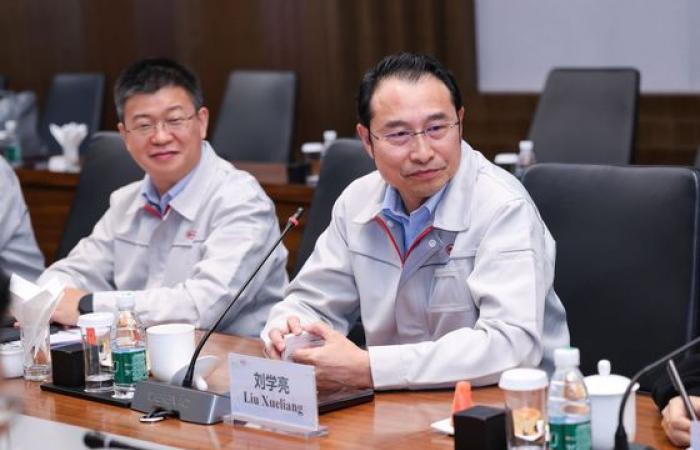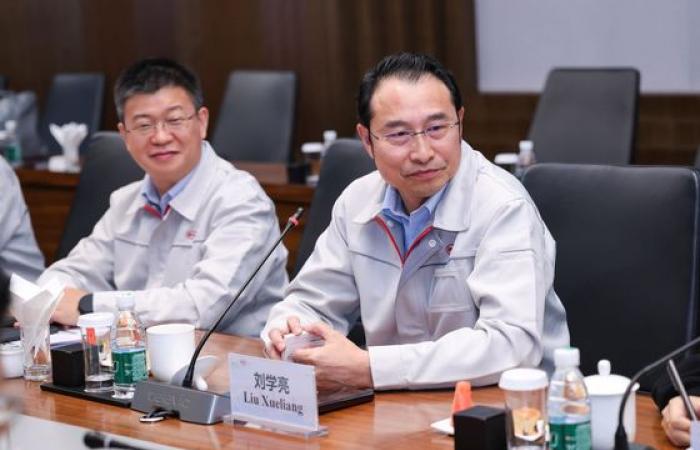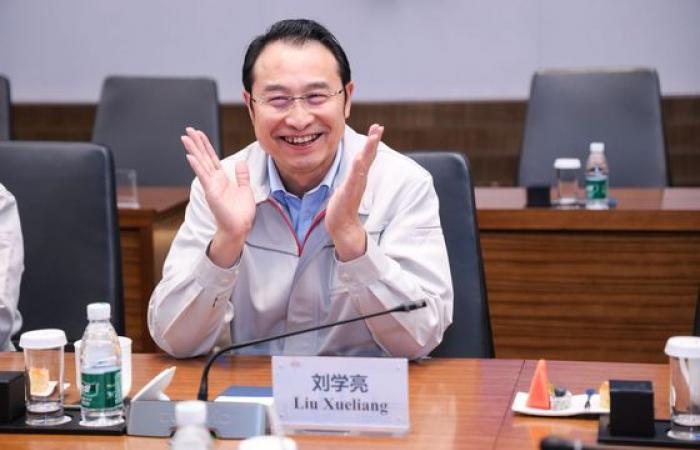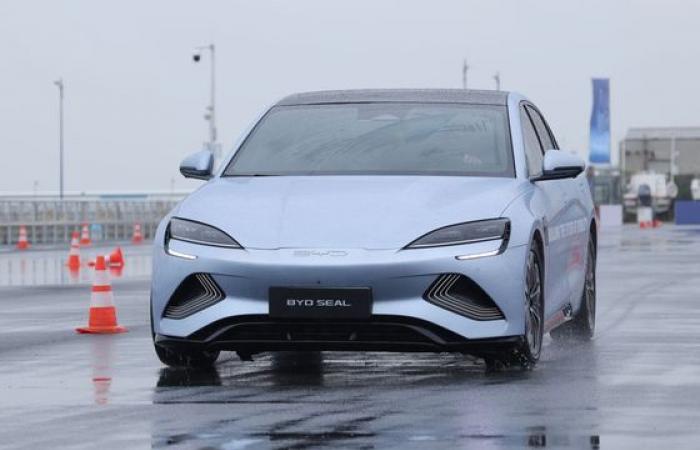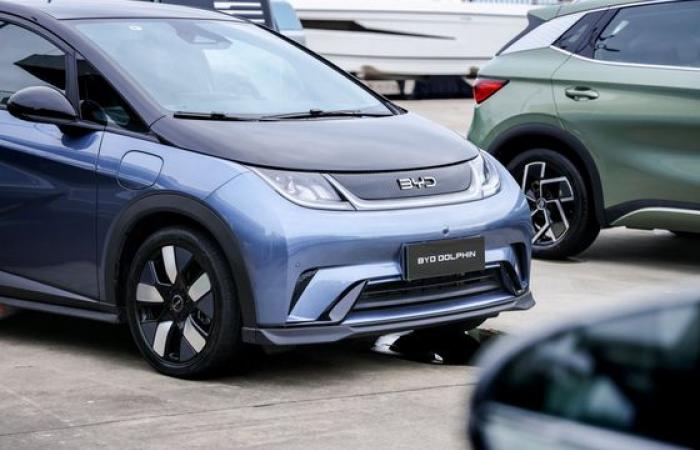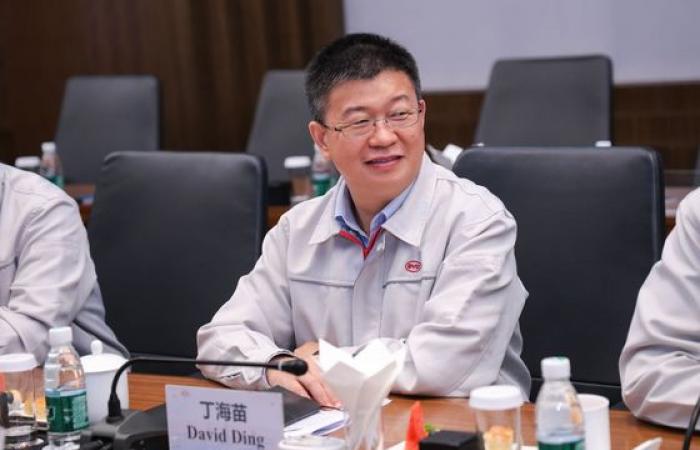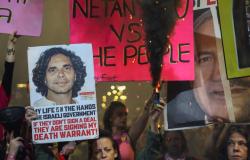Published: 25 Nov. 2024, 00:00
Updated: 25 Nov. 2024, 09:39
Audio report: written by reporters, read by AI
Liu Xueliang, right, general manager of BYD’s APAC auto sales division, and David Ding, the new head of BYD Korea, speak during an interview with the Korean press at the EV brand’s headquarters in Shenzhen, China. [BYD KOREA]
[INTERVIEW]
SHENZHEN, China — An eagerly-anticipated BYD’s arrival in Korea’s passenger car market scheduled for January likely won’t come with as light of a sticker price as consumers expect, says its Asia Pacific (APAC) chief.
It’s “Korean customers’ big misunderstanding that BYD is pushing for a low-pricing strategy,” said Liu Xueliang, general manager of the world’s largest EV maker’s APAC auto sales division, during an interview with Korean press at the EV brand’s headquarters in Shenzhen, in southeastern China’s Guangdong Province, on Nov. 20.
“BYD’s four subbrands can offer all ranges of cars, from luxury to those for the masses. And with BYD cars, Korean customers will be able to have a new definition of luxury cars,” Liu said. “We aim to launch at least a new model every year in Korea, starting an official debut in January.”
That’s not a hedge against tariffs, Liu said. When asked about responses to U.S. President-elect Donald Trump’s threats to target Chinese brands with high tariffs, the general manager said Trump’s policies only “disadvantage consumers.”
“The tariff policies ultimately harm consumers, not us,” Liu said. “BYD will still endeavor to offer quality products at reasonable prices in all countries based on their own tariff guidelines.”
![Liu Xueliang, general manager of BYD Asia Pacific auto sales division, speaks during an interview with the Korean press at the EV brand’s headquarters in Shenzhen, Guangdong Province in southeastern China. [BYD KOREA]](https://euro.dayfr.com/content/uploads/2024/11/24/badfaae2e3.jpg)
Liu Xueliang, general manager of BYD Asia Pacific auto sales division, speaks during an interview with the Korean press at the EV brand’s headquarters in Shenzhen, Guangdong Province in southeastern China. [BYD KOREA]
![BYD's Seal sedan [BYD KOREA]](https://euro.dayfr.com/content/uploads/2024/11/24/0a8a918d4f.jpg)
BYD’s Seal sedan [BYD KOREA]
Still, Liu’s remarks tear Korean customers’ anticipation down that they can expect relatively cheaper EVs soon in the local market. The price of BYD’s entry-level Dolphin hatchback starts at 99,800 yuan ($13,800), while the Atto 3, which is known as Yuan in China, starts from 119,800 yuan and Seal at 179,800 yuan.
Dolphin, Atto 3 and Seal are currently in the process of obtaining approval from the Korean government for an official release. Seal and Atto 3 are considered the models with the most potential to be launched first in the country.
BYD entered Korea in 2016, but only with commercial vehicles like electric buses and trucks. With its price competitiveness, BYD has already sold 1,000 electric buses in Korea. The Chinese brand’s electric buses cost around 100 million won less than local players.
“We wouldn’t want to set sales targets in Korea for now,” Liu said. “BYD is a beginner, and of course, we won’t be able to chase the local players like Hyundai Motor and Kia. Rather we’d like to expand cooperation with them.”
![BYD's Dolphin hatchback [BYD KOREA]](https://euro.dayfr.com/content/uploads/2024/11/24/7e84089317.jpg)
BYD’s Dolphin hatchback [BYD KOREA]
![David Ding, the new head of BYD Korea, speaks during an interview with the Korean press at the EV brand’s headquarters in Shenzhen, Guangdong Province in southeastern China. [BYD KOREA]](https://euro.dayfr.com/content/uploads/2024/11/24/9d3d90e085.jpg)
David Ding, the new head of BYD Korea, speaks during an interview with the Korean press at the EV brand’s headquarters in Shenzhen, Guangdong Province in southeastern China. [BYD KOREA]
BYD currently supplies its proprietary Blade lithium iron phosphate batteries to KG Mobility, a Korean automaker, for its Torres EV. The duo is also in talks regarding building a battery plant in North Chungcheong.
Regarding the ongoing public fear of EVs among Korean consumers, David Ding, the new head of BYD Korea, sees it as an only passing phenomenon during the transition period.
“Some 10 million people all over the globe chose BYD based on our brand awareness,” Ding said during the interview. “Our very basic principle is that safety is the biggest luxury of electric vehicles.”
BYD became the No. 1 EV maker last year, usurping Tesla’s throne and selling more than 3.02 million EVs, up 62 percent on year. Of those, 242,756 units were sold overseas, in more than 90 countries across the globe, a 334.2 percent on-year jump.
While global EV sales are slowing down, BYD sales rose 36 percent on year this year through the end of September.
“Our expectations for the Korean market are very high as Korea is one of the countries with the highest speed of EV transition,” Liu said. “EVs already account for 9.6 percent of the auto market in Korea, while that percentage only stays at 1.1 percent in Japan.”
“I can confidently say BYD EVs are one of the most tech-focused and innovative cars, and sophisticated Korean consumers will be able to feel that soon,” Liu added.
BY SARAH CHEA [[email protected]]

